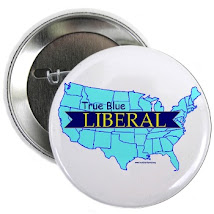I just started reading Joseph Heller's final novel, Portrait of an Artist, as an Old Man, in which Eugene Pota, an older novelist, is looking for an appropriate subject and plot for his next book. I was surprised to see that one of Pota's early attempts is a story prompted by a memory of the song Yellow Bird. In this novel sketch a young boy lets his mother's new canary out of its cage, a mistake that leads to the yellow bird's death and also leads to his first experience with successful lying when he gets his mother's money back at the pet store.
"Years later, he remembered the yellow bird and labeled the experience his first brush with death. Also his first advantageous negotiation. His first constructive deception. It was all so easily fruitful he resolved to try dishonesty again whenever a situation counseled chicanery. Like Tom Sawyer, he was fond of mischievous deceit, and his antics had never, until the present, tumbled him into trouble. Foppishly, he'd felt himself invulnerable. Absurdly, when elected to the presidency of the country, he'd chosen for himself the code name Yellowbird."
I don't know what this fictional lying president looked like, but wouldn't "Yellowbird" be a great code name for a septugenarian president who insists on wearing a baby-chick yellow wing on the top of his head.
"Forty-five years later, when holed up quaking in the White House as though in an imperiled stronghold, and confronted by the impending ignominious dishonor of impeachment, he recalled this childhood exploit with the canary, and in his next lamebrained and squirming, sorrowful, insincere, apologetic speech he impetuously injected a line of poetry he'd come upon far back in a place he no longer remembered by a poet no longer of importance to him, interpolating, 'I would rather learn from one bird how to sing than teach ten thousand stars how not to shine...or dance.' That sounded great, he thought, and infused with an ardent surge of confidence, he hastened to venture further into the domain of arts and letters and raced on extemporaneously with a line he associated with Eleanor Roosevelt, that, to wit, it was better to light a candle than curse the darkness. He was pleased with himself after that one too and was basking in his own scholarly sense of himself even before he finished.If Twitter had existed in 1999 when Heller's novel was written, I'm sure President Yellowbird would have used it rather than a speaker's podium to embarrass himself. But despite its prophetic qualities, this fictional sketch doesn't become Pota's next novel.
"His speechwriters and closest advisors, on the other hand, were aghast. In shocked states of agonized helplessness, they glared at each other with outrage. 'That putz!' grumbled the one from New York City. 'That very dumb putz!' Another, with a polite growl of apology, stepped outside to vomit."
"Who cared? What could it lead to that was worthwhile? Another political farce, another dysfunctional family yarn? Any serious literary work treating those contaminated buffoons in Washington as a herd of contaminated buffoons could no longer be fresh or striking. It would have to be ludicrous and thin, anything but serious, and there had already been too many of those."Isn't that exactly how a lot of writers are feeling about the "real world" of 2018, with our current president that no serious novelist would ever be able to (or want to) invent?














No comments:
Post a Comment